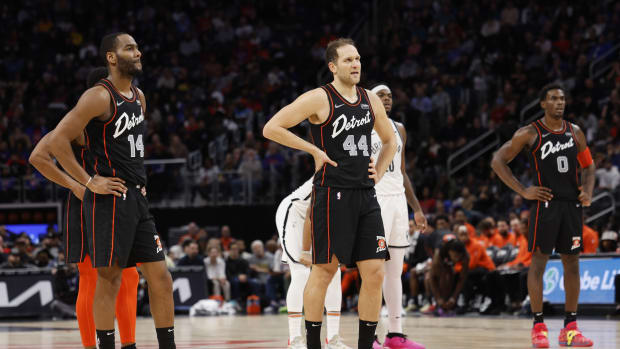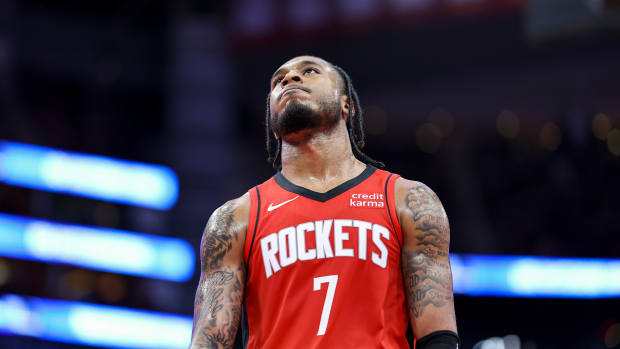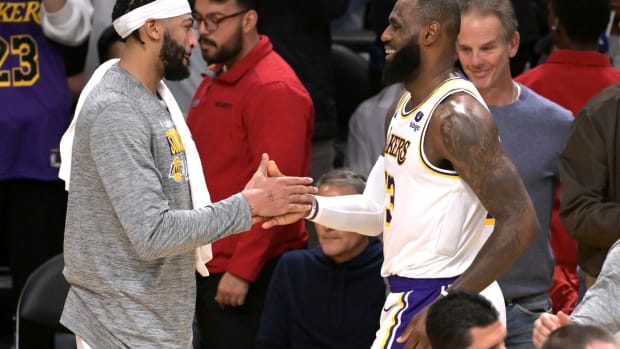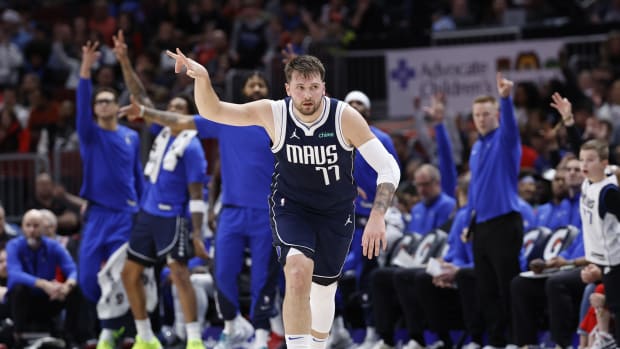Larry Sanders Living Out His Post-NBA Career in More Ways Than One
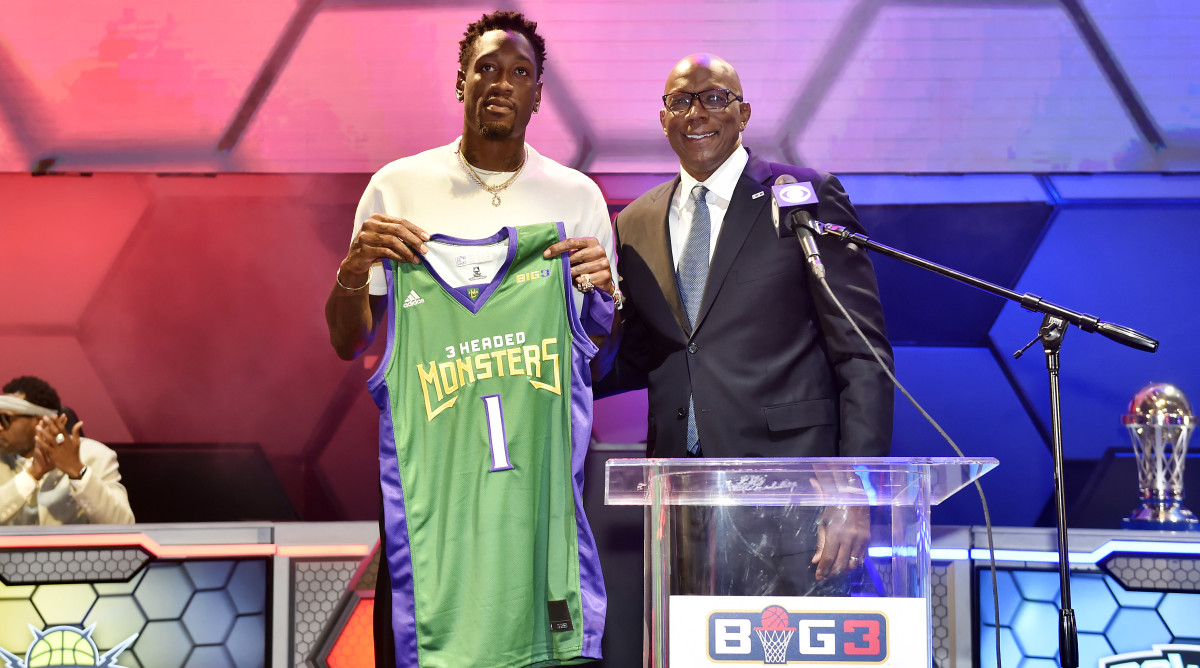
For the general public, it was a perplexing decision. So many young athletes dream of the opportunity of playing at the professional level and rewarding their families with the fruits of labor that comes along with it. Making it to the NBA—basketball’s biggest stage—is a challenging task. A very challenging task.
So when Larry Sanders chose to hang it up at the age of 26, during the peak of his career, many considered it to be a peculiar move. It left fans and media members at a lost for words.
A first-round draft pick out of Virginia Commonwealth University, the 6’11” Sanders was everything teams craved. His lanky build and versatility made him the prototypical big man for the modern NBA. He protected the paint as well as any player in the league during his five-year tenure with the Milwaukee Bucks—who took him 15th overall in 2010—and he was developing a reputation as being one of the league’s most feared defensive presences.
But after missing a handful of games for personal reasons and dealing with a fourth suspension for marijuana usage, the Bucks bought out Sanders’s contract on Feb. 21, 2015. Sanders followed it up by making a shocking announcement via The Players’ Tribune four days later, on Feb. 25, that he’d retire from the NBA as he was dealing with anxiety and depression. It came just one season after signing a four-year, $44 million extension with the team.
And he doesn’t regret it one bit. He feels being an early advocate for mental health opened the door for other athletes to share their stories.
“That was like the best decision I made in my life, honestly,” he told Sports Illustrated. “It wasn’t about basketball. I was killing it with the sport, but everything off the court was falling apart.
“I think sometimes you’ve gotta make certain points to allow things to change. When I stepped out and made that change for myself and my family, a lot of guys stepped out too and started saying ‘I deal with depression.’ Kevin Love, [Demar] DeRozan, a lot of guys felt more comfortable. It caused a lot of positive stuff, so I wouldn’t change it for nothing.”
After taking off two full years from playing or even touching a basketball, Sanders did make a comeback late in the 2016-17 season. He worked out for several teams, including the Golden State Warriors, Boston Celtics and San Antonio Spurs, but ultimately agreed to a deal with the Cleveland Cavaliers to play alongside LeBron James & Co. But after appearing in just five games and averaging only 2.6 minutes, he was soon released. It was an experience that he described as being extremely frustrating.
“They offered me to sign right after the workout, so I’m thinking they were really interested in me,” Sanders said. “But now I don’t think that was so much the plot. I think they grabbed me, with no intentions of really playing me for real, but to make sure the competitors didn’t get me. They signed me, worked me out, then the day before the deadline they cut me.”
Sanders was under the impression that he’d be able to make a return while competing for a title on a championship contender, but was released right before the playoffs began. It left him baffled and confused. He felt he was in the best shape he’d been in since walking away in 2015.
“It left a bad taste in my mouth," he said. "I had really worked myself to get back to the league."
That didn’t deter Sanders from playing ball, though. His admiration for the game remains evident. He decided to suit up for Ram Nation in The Basketball Tournament that summer, helping the VCU alum squad—which features several members from the 2011 Final Four team, and has become a tough out in the competition yearly—make a push to win the event's $2 million prize. Though they fell short, losing to Overseas Elite, who has won the tournament each year of its existence up to this point, Sanders had a noticeable determination about him. It was as if he wanted to prove he could still play at a high level.
And now, two years later, he’ll be transitioning that energy to the BIG3, which was founded by the legendary Ice Cube and Jeff Kwatinetz, the Chief Operating Officer (COO) of the television and production company Cube Vision. The three-on-three league now has a broadcast deal with CBS and has expanded from eight to 12 teams.
Sanders was taken third overall in the BIG3 draft on May 1, behind the top overall selection, Royce White, and Chris Johnson. He says it’s something he’s beyond excited about. He wants to send a reminder of the type of ability he has when locked in.
“I can’t wait to play in this BIG3, I can’t wait,” Sanders told me. “Ima be catching oops, and blocking shit, and talking to the crowd. I just love people. I love the fans. We about to get turnt! We goin’ get it popping.”
The BIG3, which begins June 22, is now in its third season, and former NBA players with prominent names are getting involved. Cube’s genius was again at the forefront by constructing a two-month long league that is played in the half court and caters directly to those who have retired. It allows past stars who still have a fire burning in their stomachs to perform on a national stage and extend their basketball careers.
Sanders will be joining the 3 Headed Monsters, who are coached by Hall of Famer, and one of the greatest trash talkers to ever play, Gary Payton. They finished in third place last year on a game-winning three by the now 50-year-old Mahmoud Abdul-Rauf. He’ll be returning for another season, so will Rashard Lewis and Reggie Evans. Along with Sanders, the 3 Headed Monsters also acquired Mario Chalmers and Tre Simmons in this year’s draft. Greg Oden, Jason Richardson and Bonzi Wells are a few other notable names who were selected.
“Ice Cube got a good thing going,” Sanders said. “Think about 10 years from now, he gonna keep this going. And you want to be a part of something like this. Even in the beginning.”
While he expressed the soft spot he still has for Milwaukee and would love to once again play for the Bucks, he’s not necessarily looking at the BIG3 as a pathway to return to the NBA. But, if the opportunity presented itself, he wouldn’t be opposed.
“That’s not my focus. One thing I learned about the NBA—and I learned this in college—if they want you, they’ll find you,” he explained. “If they want me to come, they’ll find me. They’ll come knock on the door and they’ll make it appetizing.”
Before basketball became the focal point of his life, it was all about music for the 30-year-old Sanders. He grew up in Fort Pierce, FL, beating on trashcans and writing raps on the bus as he headed to school. He said he drew inspiration from hip-hop moguls like Jay-Z and Ludacris, and the iconic duo Outkast.
That passion followed him throughout the years. During his rookie season in Milwaukee, former teammate Drew Gooden introduced him to a musical program on his computer called Logic Pro—a software that allowed him to customize his own beats. It caused he and Gooden to build a relationship off the court because of their shared interest for making music.
“I was always at his house making beats after games, we were always on the beats and shit,” Sanders said.
It became one of Sanders’s hobbies when he wasn’t playing ball. He made over 50 songs from scratch while with the Bucks, he said, and broke into the production industry soon after retiring.
“I was just in that mode,” Sanders said. “After I retired I moved out to L.A., and actually downloaded another program on my computer called FruityLoops. The first beat I made on FruityLoops, the first beat, was the one PartyNextDoor wanted and recorded on.”
That track, “Don’t Run,” was on PartyNextDoor’s 2016 album PartyNextDoor 3, which reportedly sold over 500,000 copies.
But producing music is just one of the many business ventures Sanders has been heavily involved in over the past few years.
“Real estate, getting into properties and refurbishing them. Doing that a little bit now,” he said. “Music, of course. A lot of production. Trying to collab with a lot of producers right now, mixing and matching sounds.”
He added that he’ll also be releasing episodes from a documentary he’s shooting once the BIG3 gets going.
“Just building content, man. My girl’s got a hair company that we started up, selling bundles of hair. A bunch of things here and there, but all moving parts to definitely keep me going because I can’t sit still,” he says while laughing.
Sanders wears the badge of Good Samaritan. Three years ago, he allowed a few college friends from VCU to crash at his place in Los Angeles as they took a leap of faith and moved to the area to open up a sneaker store. It’s called CoolKicksLA, positioned in a prime location on Melrose Avenue.
Mook, BK and Adeel, the three owners, lived with Sanders for a few months before eventually building their brand and becoming one of the more well-known sneaker stores in the city. It has over 185,000 Instagram followers and celebrities of all kinds stop by to pay visits on a daily. They built off their early momentum and opened two more stores, another on Melrose and one newly-opened in Santa Monica.
It was the type of good deed that can easily go unnoticed. But Mook is forever grateful. He knows without Sanders things wouldn’t have gone as smoothly.
“Transitioning from Virginia to L.A., we didn’t know much about where to live or where to go,” Mook said. “We had an idea to expand to L.A., and Larry told us he had a place for us to stay until we got on our feet. Then he ushered us around the city, telling us where to go, which night spots to go so we can network. He helped put us around that mix, even if he had to pay for a table or something like that, and it helped a lot.”
While his urge to play basketball will obviously never vanish, Sanders has continued to utilize his platform to keep busy and capitalize off his artistic talents. He has three children, Jasiah (8 years old), Jynesis (5) and Jaleel (2), and now feels he has more time on his hands to spend with family—without the requirement of traveling during a long, 82-game NBA season.
“This is like the best year I’ve had in my whole life,” Sanders said. “I’m able to see everything clearly. Where my family is, their health, their well-being, myself, my finances, the people around me. If you don’t got some people who have your best interest in mind, that will sacrifice their own interests for yours, if you don’t got people like that around you, then it’s gonna be hard for you to see your way, and find your guidance.”
Sanders has had a love and appreciation for many things outside of basketball—but he’ll always have an attachment to the game itself. And thanks to the BIG3, he gets another opportunity to showcase the kind of impact he can still have on the hardwood.
“Ima give them something to talk about,” Sanders said. “Put me on a team and I’m going to affect winning. That’s my niche.”
































